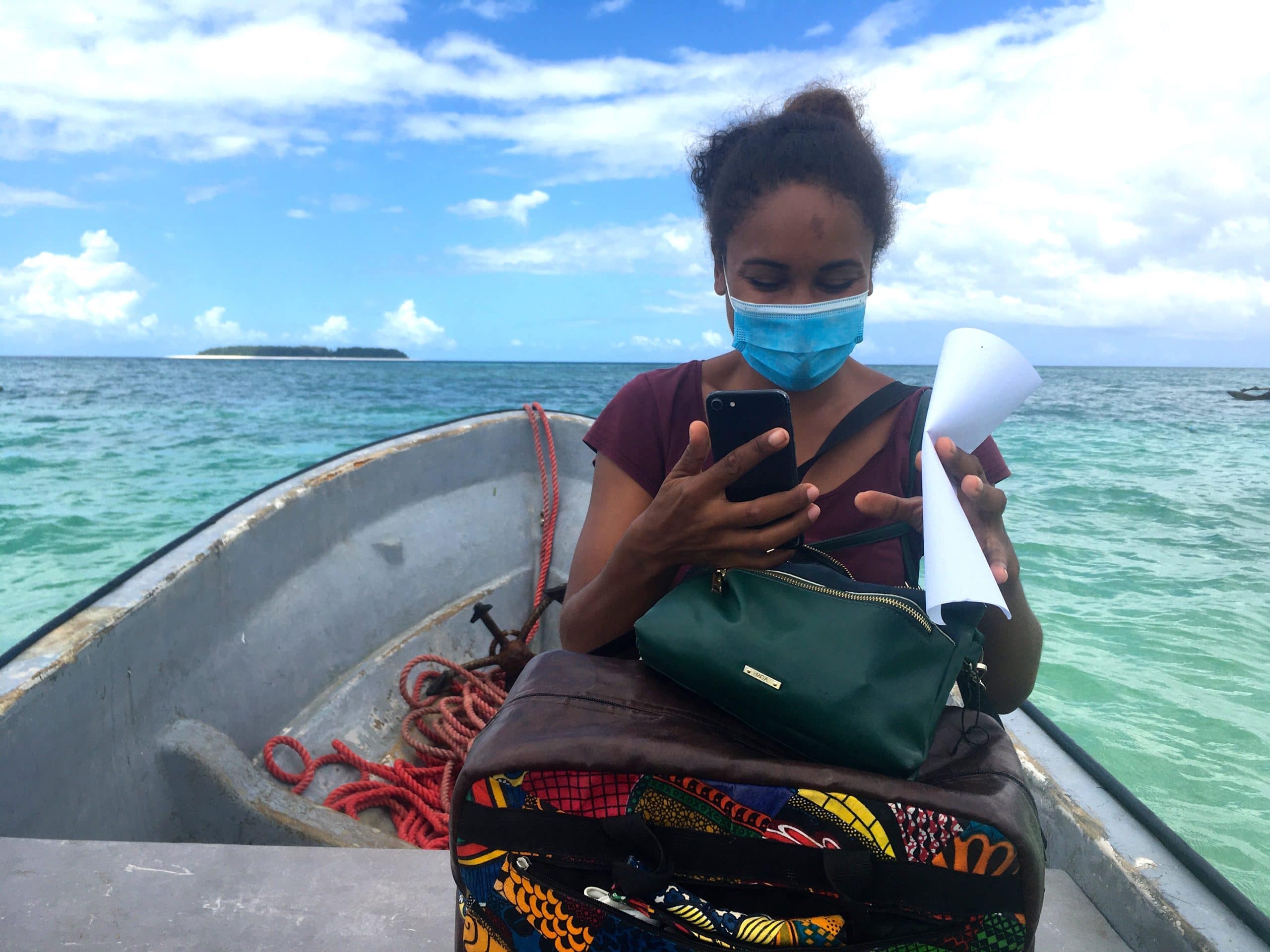
How does a doctor work in Zanzibar? Making sure Fumba Town is in safe medical hands and reaching out to patients all over the island, we followed Fumba Town’s resident physician around for one day.
8am, the Urban Care clinic will open soon but Dr. Jenny Bouraima has been up for almost three hours. “Such is the life of a working mum”, she says with a smile. Every day she first attends to her two small children, then to paperwork such as insurance claims, before opening the doors of her clinic. The little gem of a health facility has four in-patient beds, a lab and five staff including another resident doctor Dr. Winifrida Mmasi who recently joined the team. At the reception friendly Hanifa is typing invoices into the computer and while I am wondering, how much a consultation costs here (it starts at TZS 20,000), I learn the first important lesson. No patient is turned away because of money. Every Thursday is Alkhamis Bure when consultations and basic laboratory services are free of charge to Zanzibar citizens with little means. Recently the free scheme was expanded, Dr. Bouraima explains: “In several villages we now provide free health services three days a week, with a value of seven million Tanzanian shillings in the month of June 2020 alone.”
9.30am, I spot oxygen bottles, sterilisation devices, an ultrasound machine. Mohammed rules in the lab which is the backbone of any tropical doctor, as I will find out in the course of the day, helping to diagnose malaria, dengue fever, hepatitis and many other serious diseases. In the clinic there is a homely room, too, with a wind chime - the space of a psychotherapeutic counsellor. I make a mental note to tell a friend about it who is stuck in an unhappy marriage. Maybe she and her husband could fix their bond here? “Let’s move to the village”, Dr. Bouraima, 34, says, interrupting my thoughts.
10am, in front of a small red building under giant Babobab trees in the village of Dimani two women and several children have come to see the daktari. The ujamii office, donated by the developers of Fumba Town, serves as a meeting place and for community outreach. “To see what would otherwise not be seen, to talk about matters otherwise swept under the carpet”, Dr. Bouraima sums up her vital activities here.
12am, an older man with prostate problems walks in; then a16-year-old in alarming condition is brought in, which turns out to be poorly managed diabetes. A young mother calling herself Hamsi, 25 years old with three kids (median age at first birth in Tanzania is 19.5 years), suffers from exhaustion, headache and fever – these are just three patients among about a dozen. “Even antibiotics didn’t work”, the young mum helplessly whispers, while the distant sound of the milkman’s bike can be heard. “What is your diet, when did the fever start?” Dr. Bouraima gently inquires in Swahili. - “Often our job is a mix of screening and education”, says the doctor born and trained in Germany. Knowledge about nutrition and hygiene is often lacking as is rural infrastructure. The health situation in Dimani and Nyamanzi improved immediately, when new wells were built. “And people come to the doctor for the wrong reason or too late”, adds Jenny Bouraima, “with every little sniff, but not with breast cancer, diabetes or high blood pressure.”
1pm, our lunch are a few cashew nuts on the way to house visits all over the island, the doctor being her own driver. One of the sterilisation machines has to be dropped off for repair, but the road leading to “Zanlab Equip” is blocked off for a new canalisation. Traffic police allow us to drive on but says we must hurry. The shopkeeper says we may leave the sterilizer but they can’t say when it will be ready. There are many “buts” to a doctor’s routine in Zanzibar.
In Mombasa, we hand over swabs from a child with skin rash to a driver to bring them back to the clinic, when suddenly a distressed mother calls in. Her 17-year-old son’s temperature has risen so high over a matter of hours that he is very weak; in this time of coronavirus she is very scared. It is 2pm, when the doctor turns the car around to rush to the sick boy. Could it be malaria? Another taxi takes the boy’s blood samples, while we continue to Matemwe, a good hour’s drive towards the east coast. The private luxury island of Mnemba has reported a patient, weakened by diarrhoea. It’s rainy season. Several roads have turned into lakes. Google maps becomes the doctor’s best friend.
4pm, a dinghy already awaits us at the shore. “For me there are no VIPs and other patients”, says Dr. Bouraima while we are ferried to the private island. “Every patient is a very important patient.” The phone rings, it’s Mohammed from the lab, the 17-year-old has indeed contracted malaria. The doctor hangs up to alert his mother with instructions what medicine to get from the pharmacy at once.
6.30pm, the Mnemba island patient is stabilised; more blood samples are ready for the lab. “Today was a quiet day”, says the doctor when we turn back into the gate of Fumba Town where the sun is just about to set.
Health Matters
The density of physicians in Tanzania is four doctors per 100,000 population (2016), in Europe it's 308 doctors, in South Africa 90.
A young country like Tanzania has a fast growing popoulation; two thirds are younger than 25, only six percent older than 55.
African countries pledged to spend 15 percent of their budget to health in the Abuja declaration 19 years ago. Tanzania spends 3.6 percent on health (data from 2017).
(Sources: World Fact Book, Indexmundi)